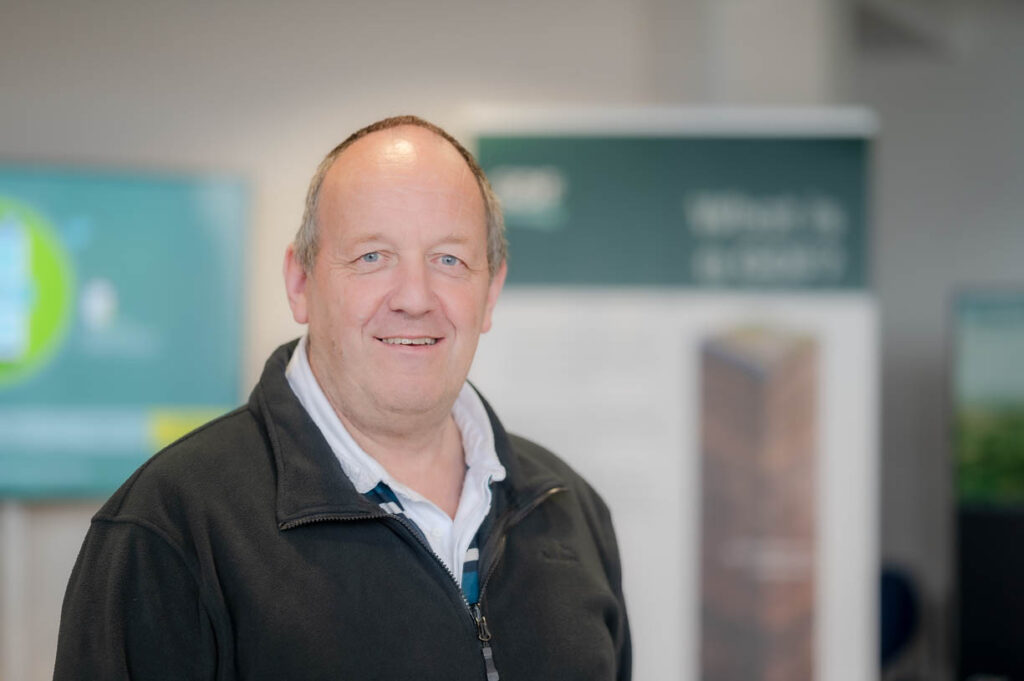Thank you to residents in the Mid Copeland area who took part in our annual survey.
Between July and August 2024, a sample of 309 people (aged 16+) living in the Mid Copeland Search Area (electoral ward of Gosforth) were asked about their awareness of the Community Partnership, geological disposal and Nuclear Waste Services.
The Community Partnership’s preference this year was for researchers to offer a mixture of face-to-face surveys (at Gosforth Agricultural Show and Rotating Wheels), knocking on doors, and also carrying out telephone interviews.

Chair of Mid Copeland GDF Community Partnership, Andy Pratt, shared his initial thoughts on the findings of the third survey and independent research consultant, Yonder, summarised the results.
Andy said: “This annual survey of residents gives us a snapshot view in the local community, so thanks to everyone who took part.
“We asked the researchers to get a larger sample size this year and over 300 people took part. We also wanted to broaden our reach and decided to add some door-to-door interviews to capture as many views as possible from a wider audience.
“Some of the figures were similar to last year and some areas have changed – so we will work through to understand any differences or particular needs highlighted by the community and look to address those. In general, awareness and understanding was greater among those with a direct industry connection.
“The GDF programme is a long process and any data we gather is useful to help shape our engagement with local people as Nuclear Waste Services continues to carry out its studies to see whether this area is suitable to build a GDF.”
Summary
Over half of the survey participants (53%) would support the potential construction of a GDF in the Mid Copeland Search Area, while 12% would be opposed. This compares with 56% and 15% respectively in last year’s survey. 35% were neutral or undecided (28% last year).
The net support for the construction of a GDF in the Mid Copeland Search Area stood at +41 from this survey, the same figure as last year (+39 in 2022). Net Support is the percentage of residents surveyed that supported the proposal, minus the number that opposed it (excluding those undecided).
61% of respondents stated they could recall seeing, reading or hearing something about nuclear waste or a GDF over the past year (compared to 78% last year and 79% in 2022). Of those, 31% attributed this to a leaflet, newsletter, or something posted through the door (compared to 47% last year).
Community engagement
37% said they had seen and read the ‘GDF News’ newsletter (compared to 40% last year). Another 24% claimed to have seen the ‘GDF News’ newsletter but not read it. Of those that claimed to have read the newsletter, 83% thought it was informative, 68% liked the look of it, and 86% said it was easy to understand.
40% were able to accurately describe how the UK managed its most hazardous radioactive waste (stored at interim surface or ground-level storage facilities), compared to 46% last year. Nearly one-in-five (18%) believed the UK’s most hazardous waste was already held in vaults deep underground in the UK.
Nearly half (48%) were able to identify the accurate description of a GDF (compared to 41% last year), 28% said they had heard of the term ‘GDF’ but didn’t know what it was (compared to 30% last year).
Nearly two-in-three (61%) supported the national policy to construct a GDF in a willing community (compared to 65% in 2022 and 2023). One-in-three (32%) were neutral, and (7%) were opposed to the national policy (compared to 24% and 8% in 2023 and 19% and 16% in 2022). Net support for the national policy stood at +54 (compared to +57 in 2023 and +50 in 2022).
75% said they were aware that a Search Area covering Gosforth electoral ward as well as areas underneath the seabed off the coast of Copeland had been identified for further investigation of its suitability for a GDF, compared to 82% last year. 69% were aware that a Community Partnership had formed to engage locally.
When asked about potential advantages to a local GDF, more than half (56%) of respondents said increased job opportunities; 17% said improved safety of existing nuclear waste and 15% said investments in local environmental improvements.
The most common perceived disadvantages related to local disruption – 24% said potential increased traffic or congestion and 22% said potential disruption and dirt produced by construction.
Half of respondents (50%) said they did not want to engage or give their views regarding geological disposal and the siting process and a further 15% claimed they did not know whether or how they wanted to engage.
When asked if they trusted the Community Partnership to provide the community with information to make an informed decision about GDF, 61% said they strongly agreed, or tended to agree; 27% neither agreed or disagreed; 7% disagreed and 6% didn’t know.
When asked if they had trust in the GDF process to be honest and transparent, 59% said they strongly agreed, or tended to agree; 26% neither agreed or disagreed; 9% disagreed and 6% didn’t know.
When asked whether they had trust in NWS, 54% said they strongly agreed, or tended to agree; 32% neither agreed or disagreed; 7% disagreed and 7% didn’t know.
*Quotas and weights were employed to ensure the research sample was representative of the ward population in terms of the age and gender profile. Yonder is a member of the British Polling Council and abides by its rules. For more information, see www.yonderconsulting.com
